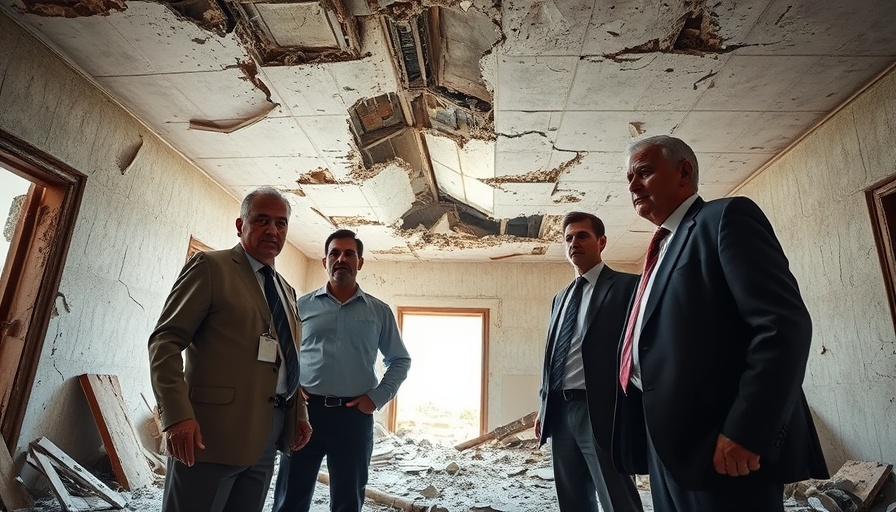
Understanding Netanyahu's Stance on Iran
Israeli Prime Minister Benjamin Netanyahu recently declared that Israel will take whatever measures necessary regarding Iran's leadership, emphasizing a proactive approach amidst rising tensions in the Middle East. This stance is not just about rhetoric; it reflects Israel's long-standing concerns about Iran's nuclear capabilities and regional ambitions.
The Historical Context of Israeli-Iranian Tensions
For decades, the relationship between Israel and Iran has been fraught with hostility. Following the 1979 Iranian Revolution, which established the Islamic Republic, Iran has positioned itself as a staunch adversary of Israel, calling for its destruction. Israel's concerns are further amplified by Iran's support for armed groups like Hezbollah and military involvement in Syria.
Recent Developments in US-Iran Relations
With the United States' foreign policy shifting under various administrations, tensions with Iran have oscillated. Under the Trump administration, a 'maximum pressure' policy was implemented, leading to the withdrawal from the 2015 nuclear deal. This reversal has exacerbated apprehensions in Israel, as Iran continues to enrich uranium, edging closer to nuclear weapon capabilities.
Impact on Regional Stability
Netanyahu's statements highlight not only Israel's defense priorities but also the broader implications for stability in the Middle East. Any military actions taken by Israel against Iranian assets can trigger a series of retaliatory responses from Iran or its proxies, leading to potential escalations in regional conflicts.
Counterarguments and Diverse Perspectives
While Netanyahu’s firm stance resonates within Israel, there are mixed opinions among international analysts. Some argue that military action could further destabilize the region and fail to address the underlying issues. Diplomatic efforts, albeit challenging, may offer a more sustainable path to peace. Engaging Iran in dialogue rather than conflict could potentially lead to a de-escalation of tensions.
Economic Implications for the Bay Area
The geopolitical landscape has direct effects on global markets and local economies, including that of the Bay Area. Investors and businesses are often impacted by political uncertainties, especially in the tech sector where international supply chains are at stake. Companies may need to adapt their growth strategies in response to these developments, particularly in terms of cybersecurity and infrastructure resilience.
Strategic Business Insights Amidst Global Tensions
Local businesses in the Bay Area may find that understanding the global landscape is crucial for navigating economic volatility. The tech industry, known for its agility, can leverage geopolitical insights to innovate and respond effectively to market changes. Additionally, corporate social responsibility becomes more pronounced as consumers demand transparency and ethical leadership in companies.
Conclusion: A Call for Vigilant Leadership
The situation with Iran underscores the necessity for vigilant leadership in both politics and business. As tensions escalate, companies must be prepared for the ripple effects on markets and consumer behavior. By fostering resilience and adaptability, businesses in the Bay Area can position themselves to thrive even amidst uncertainty.
 Add Row
Add Row  Add
Add 



Write A Comment